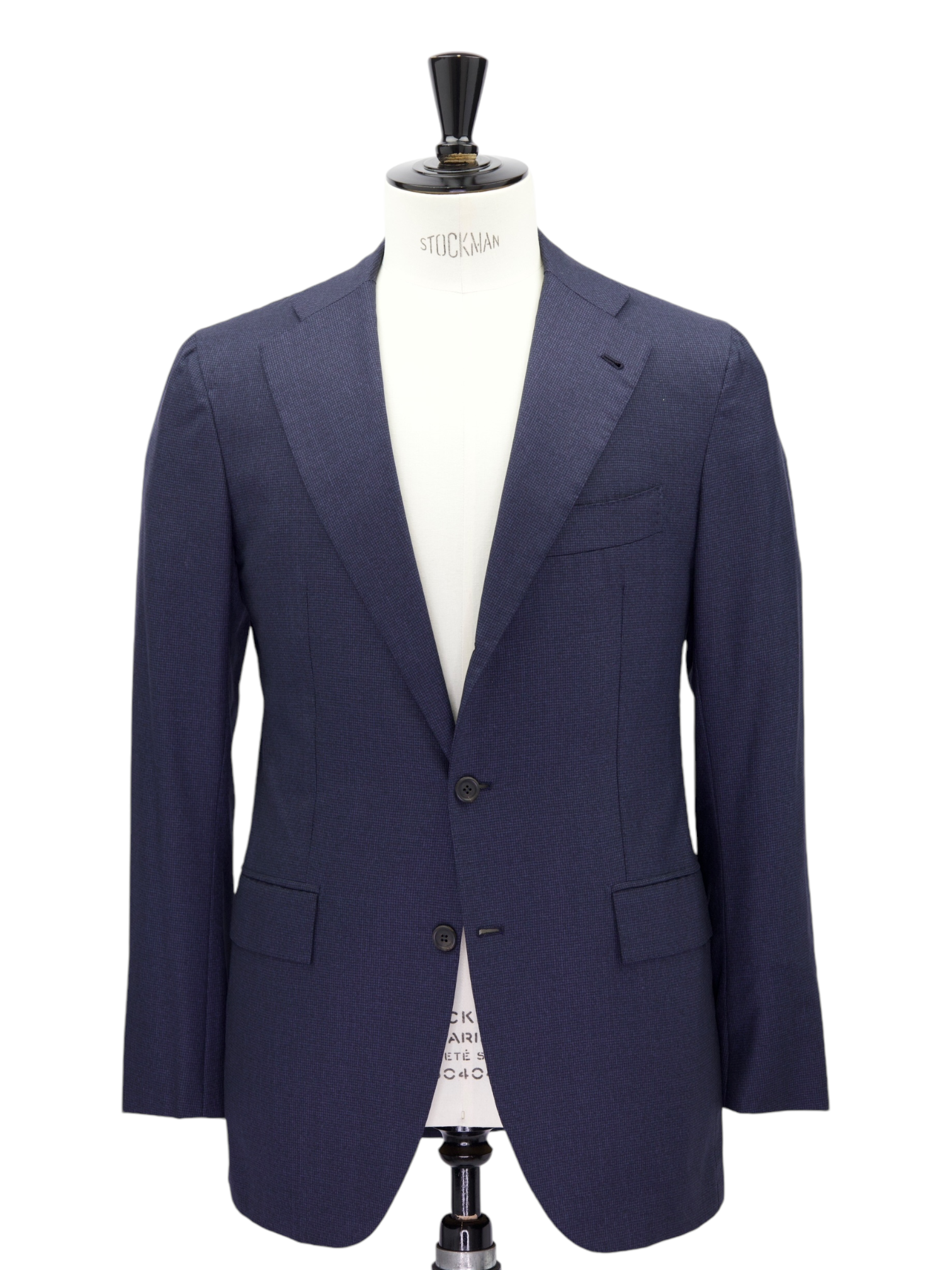
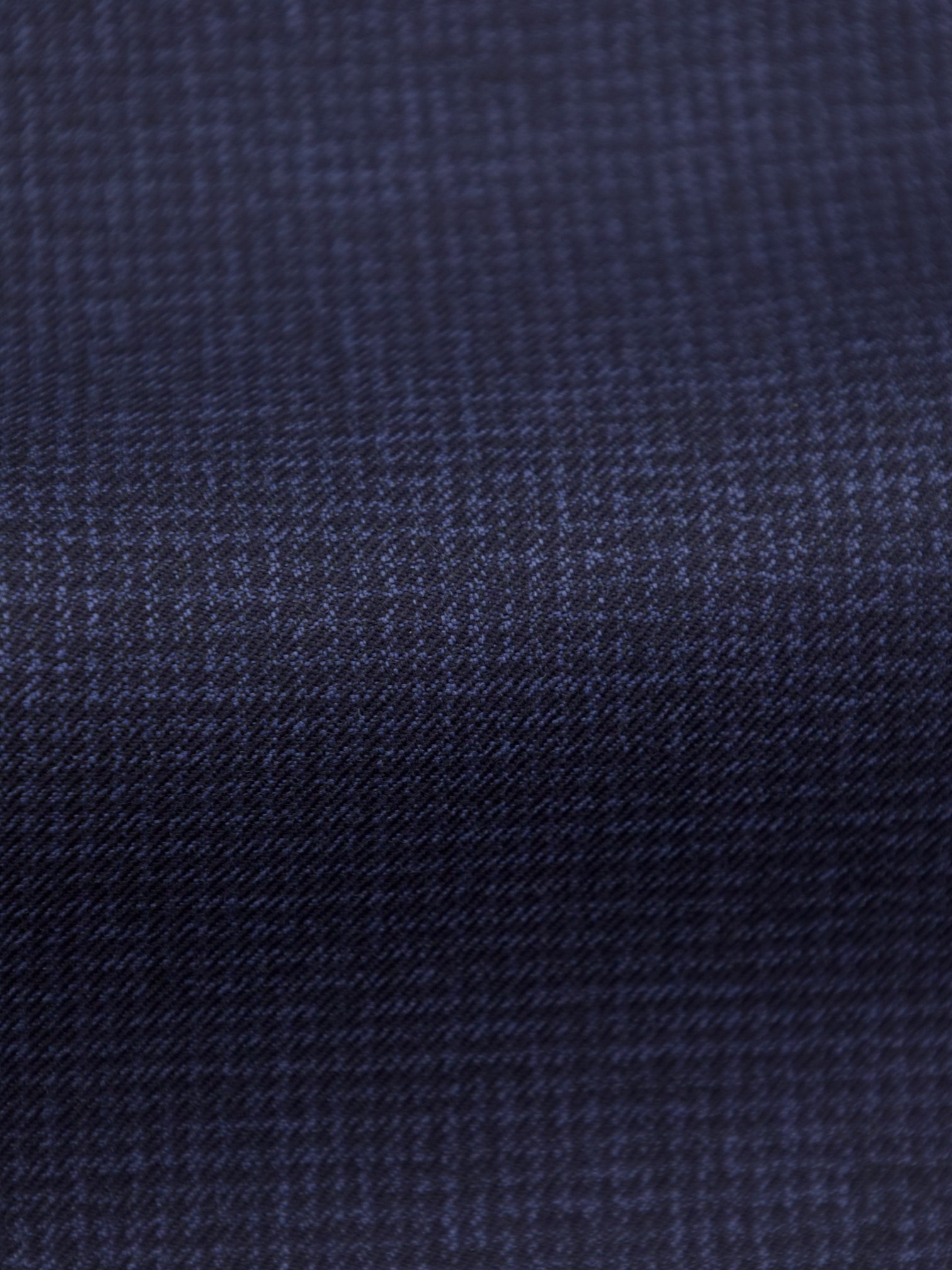
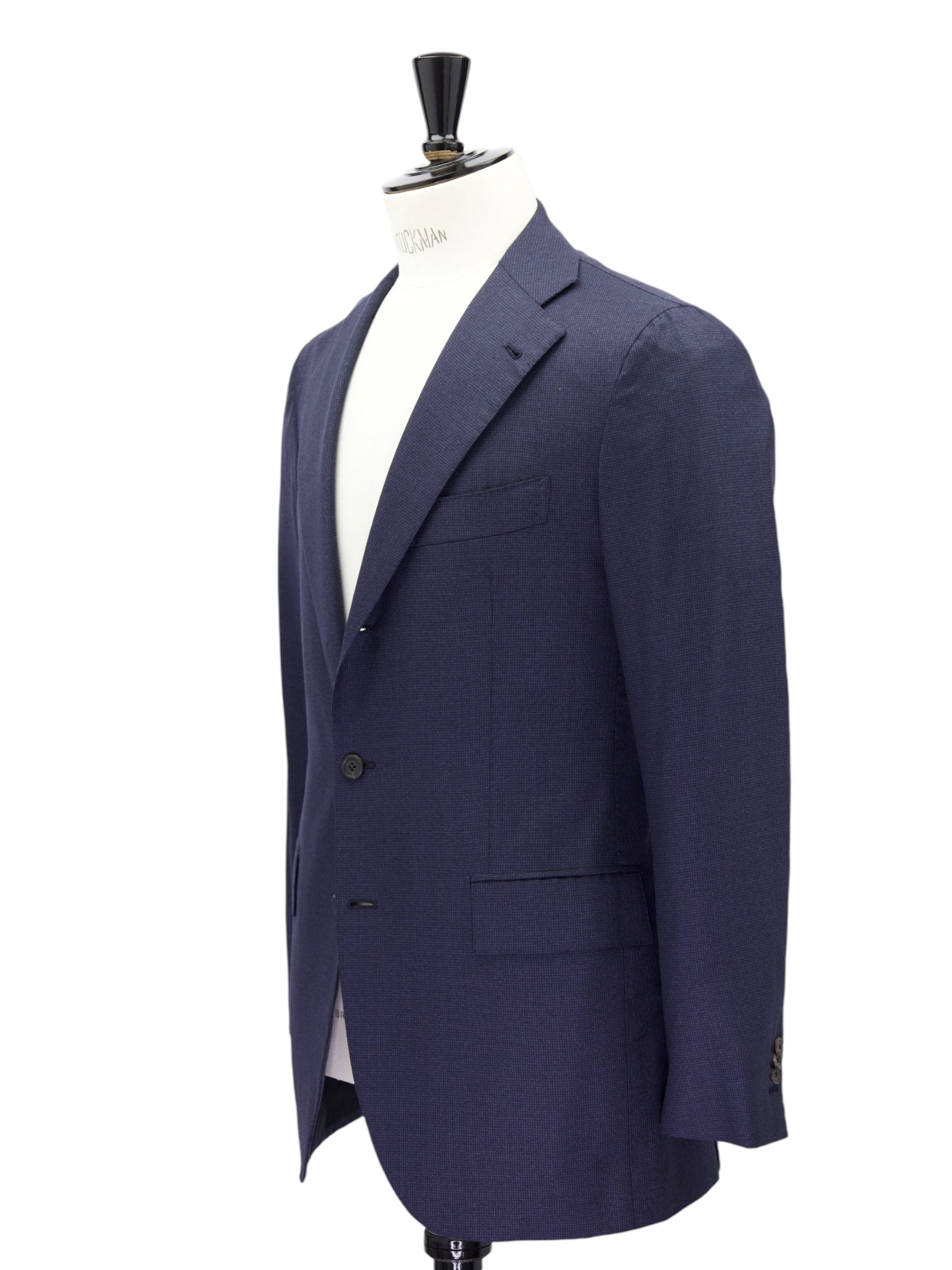
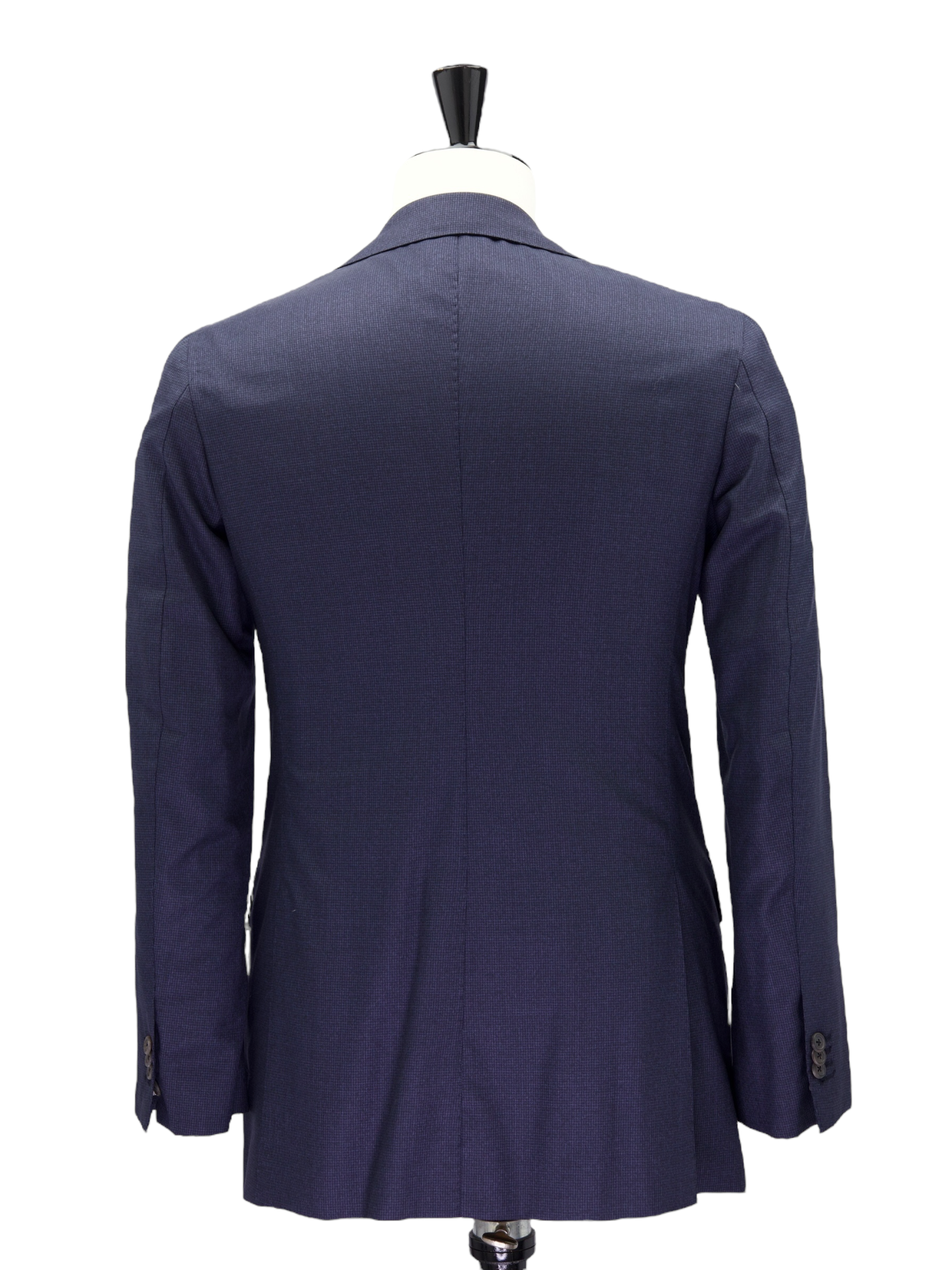
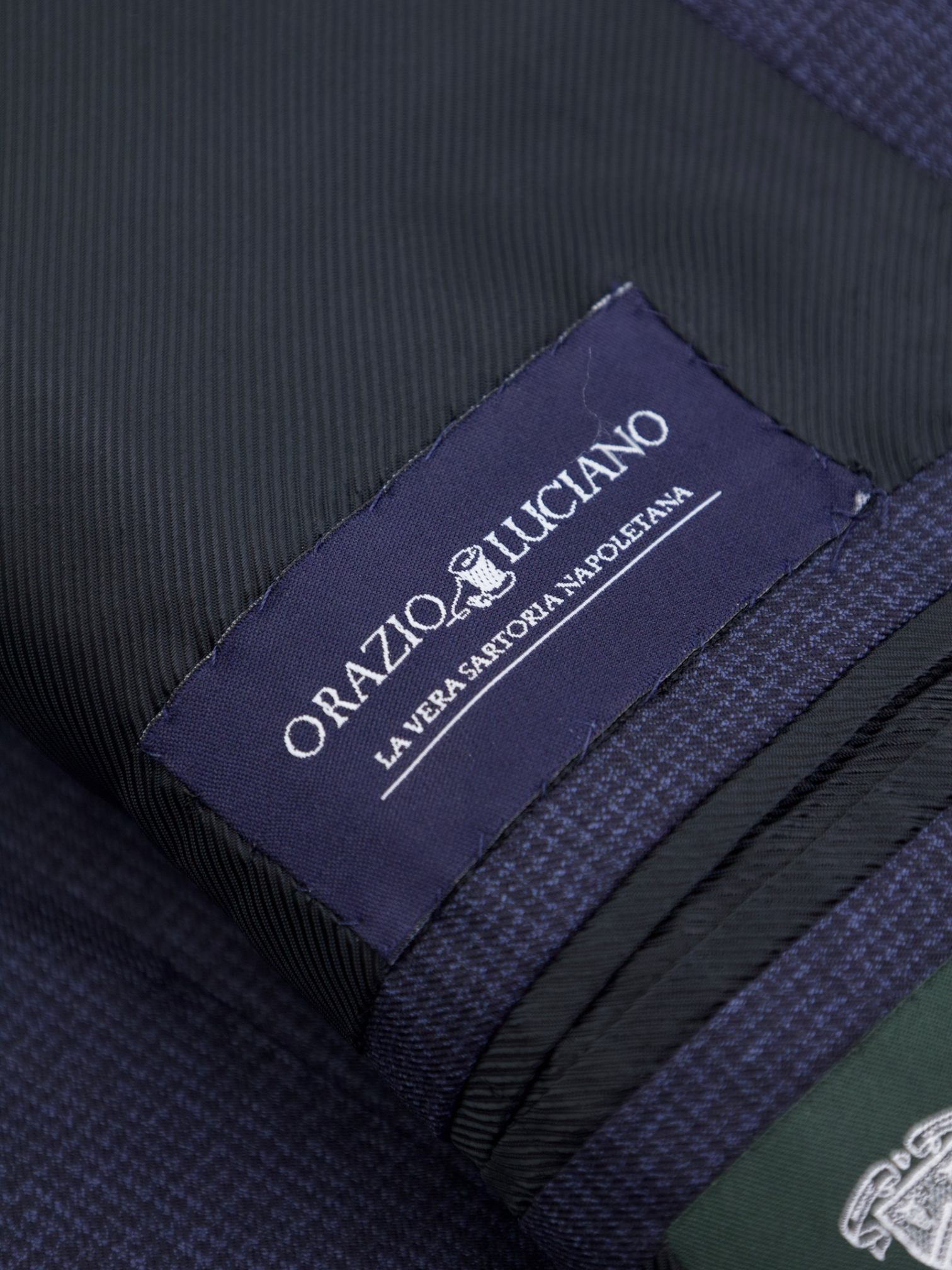
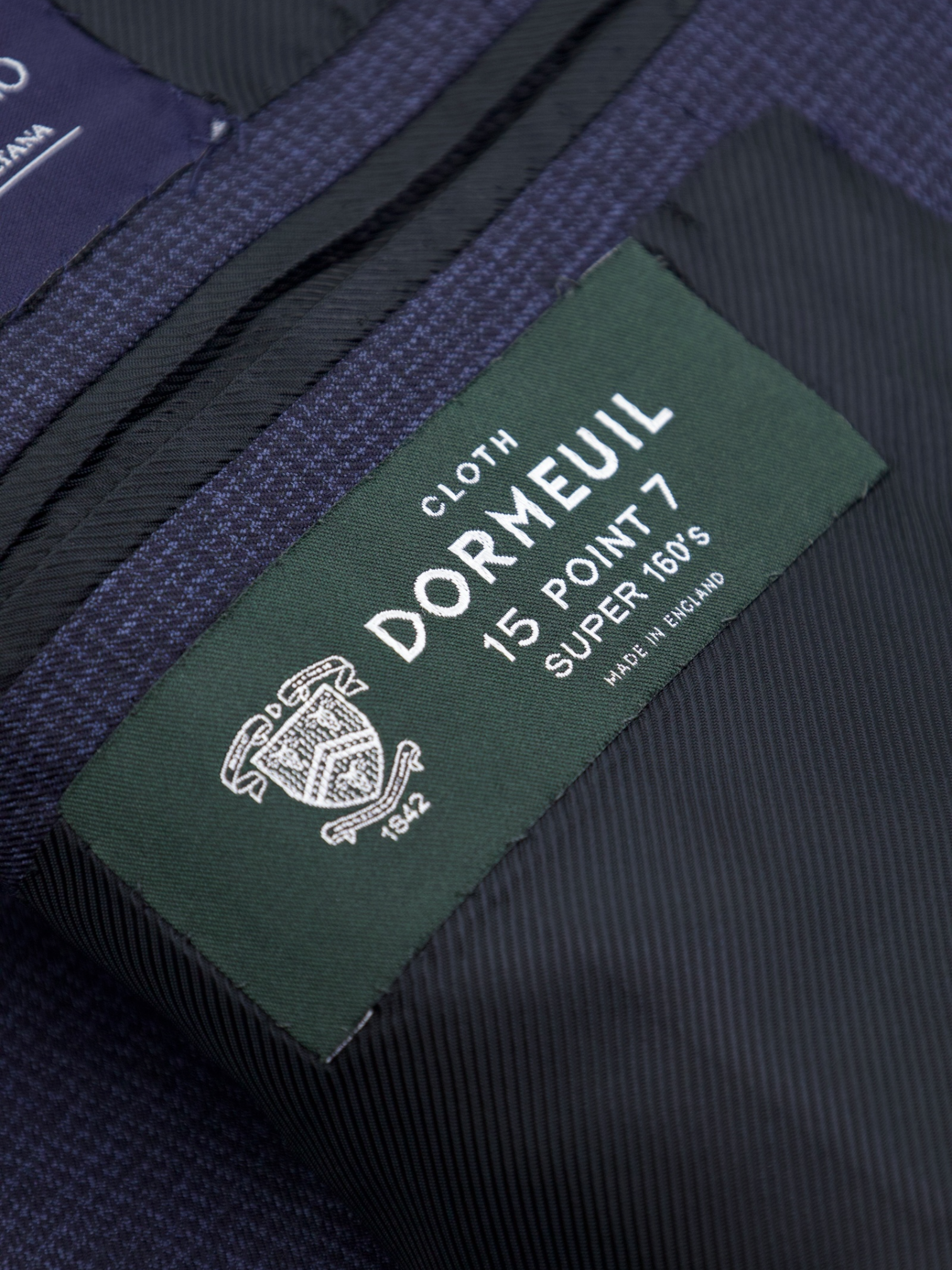
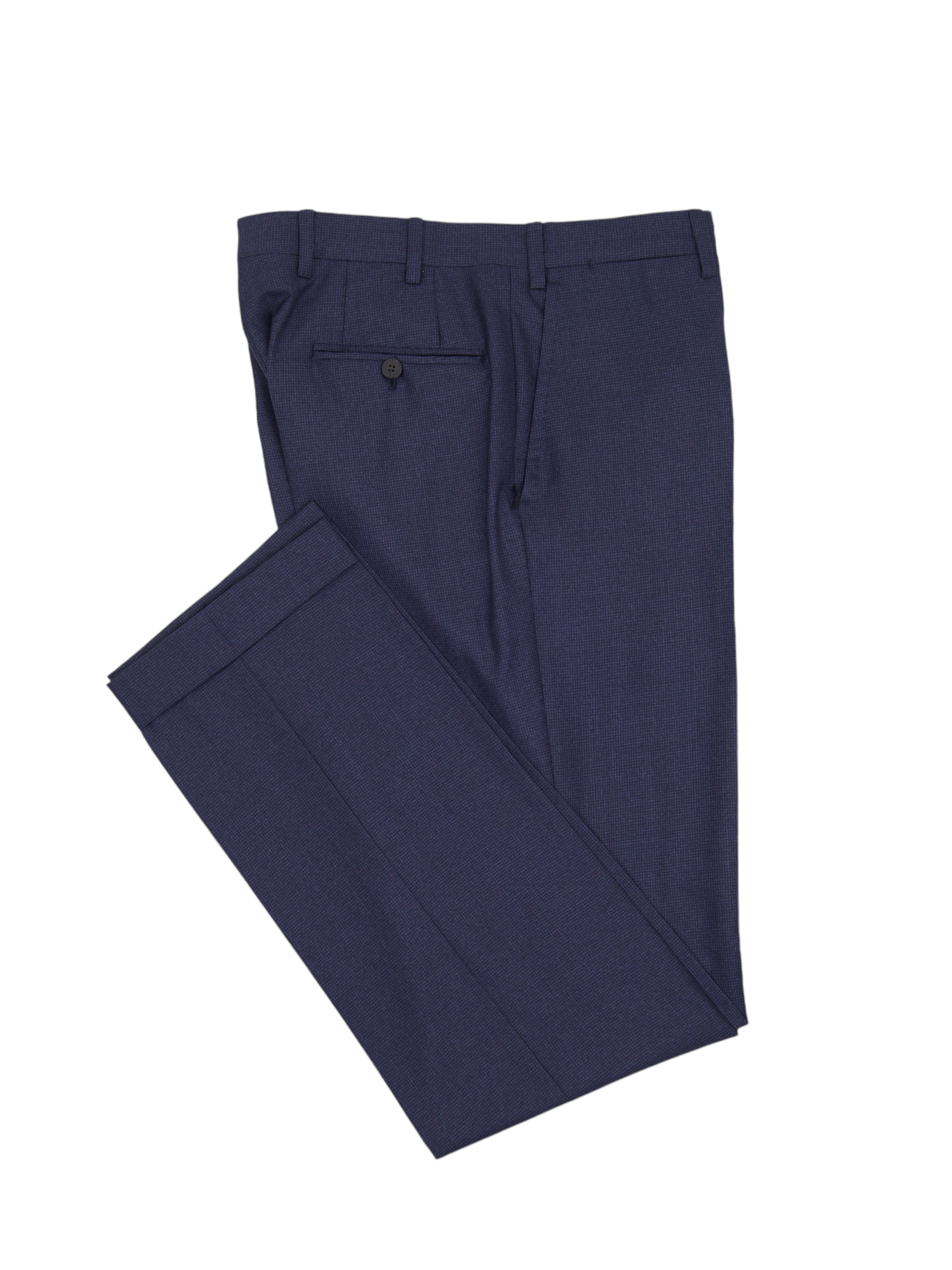
Orazio Luciano Blue Dormeuil Super 160’s Puppytooth Suit
48 IT / 38 US / Medium
Discover the Orazio Luciano Blue Dormeuil Super 160’s Puppytooth Suit, a luxurious testament to refined style and the pinnacle of fabric craftsmanship. This striking suit is crafted from Dormeuil’s prestigious "15 Point 7" fabric, a Super 160’s wool renowned for its softness and durability, woven in England. The sophisticated puppytooth pattern adds depth and texture to the cool blue hue, making it an ideal choice for both office wear and distinguished events. Tailored in Orazio Luciano’s signature Neapolitan style, the suit features a soft shoulder and a half-lined construction that provides comfort and a light drape, allowing the exquisite fabric to fall effortlessly.
Dormeuil’s "15 Point 7" fabric is celebrated among connoisseurs for its blend of opulence and resilience, produced using ultra-fine fibers for an exceptional hand-feel and breathability. Each Orazio Luciano suit is meticulously handcrafted in Naples, where master artisans bring together traditional tailoring techniques with innovative fabric selections. The construction includes hand-stitched canvassing, hand-rolled lapels, and fine detailing that enhances both the structure and the natural flow of the suit. This suit exemplifies the harmonious balance of British fabric heritage with Italian tailoring expertise, making it a truly remarkable addition to any wardrobe. Discover the elaborated sartorial details below.
Composition: 100% Super 160's Wool (15 Point 7 by Dormeuil, woven in England)
Color: Navy
Pattern: Puppytooth
See how we measure our sartorial items
Discover the customization possibilities by visiting our tailor alteration guide
Shipping
• Complimentary shipping on orders over €200 (Netherlands), €500 (EU), and €1,000 (rest of world
• Orders below these thresholds are charged based on destination
• All items ship directly from Amsterdam, The Netherlands
• Customs duties and import fees outside the EU are the customer’s responsibility
Returns
EU customers have the right to withdraw within 14 days of delivery.
• Return shipping is at the customer’s expense
• Items must be returned unworn and in original condition
• Any use beyond indoor fitting may result in a diminished refund
Orders outside the European Union are exported goods and considered final sale (no returns).
Altered or tailored items are final sale.
Please review measurements and quality control comments carefully before ordering. As a small independent boutique we encourage thoughtful purchasing. For any questions, feel free to contact us before placing your order.
General Note: While we inspect each item to ensure its quality, please note that minor imperfections may be present due to the preloved nature of the garments. We strive to represent every item accurately, but subtle signs of wear may sometimes go unnoticed. We appreciate your understanding and commitment to sustainable luxury.
Choose options







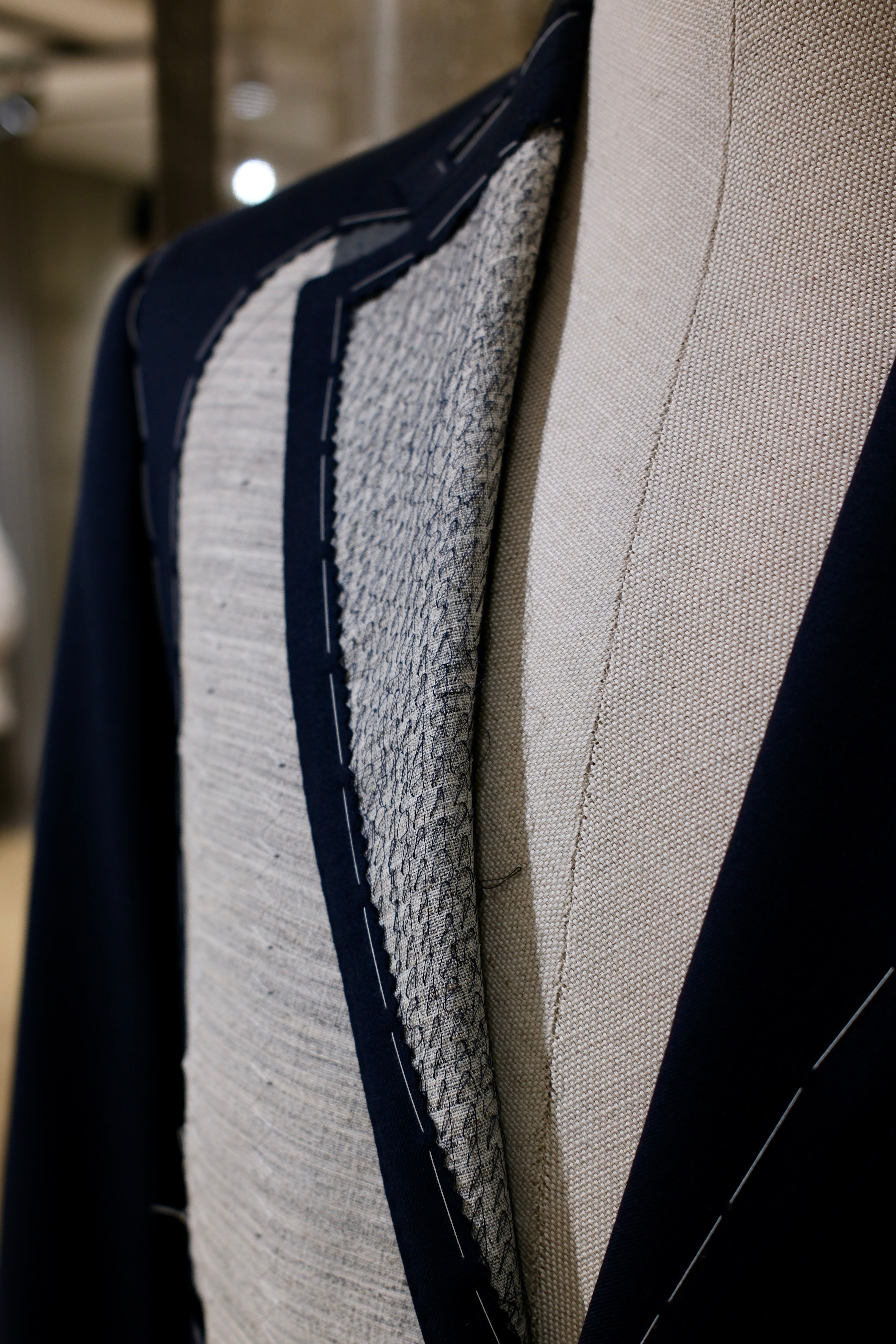
Discover the
Sartorial Details

Full Canvas Construction
A sartorial jacket - or coat - needs an interlining that will help give it shape and mold it. Canvas gives the item a tailored and crafted look. In short, it breathes life into it. Purely technical, canvas is made from either horsehair, wool, mohair or camel hair. It could also be a mix of them all, with varying thickness and weight. The canvas is stitched to the jacket, often by hand, thus making the canvas pieces 'floating' in the middle of the inner and outer cloth. This gives the jacket added flexibility. The canvas runs from the upper parts, all the way down to the end of the jacket. After you wear your canvassed suit for a while, it will begin to take your shape and look incredibly natural.
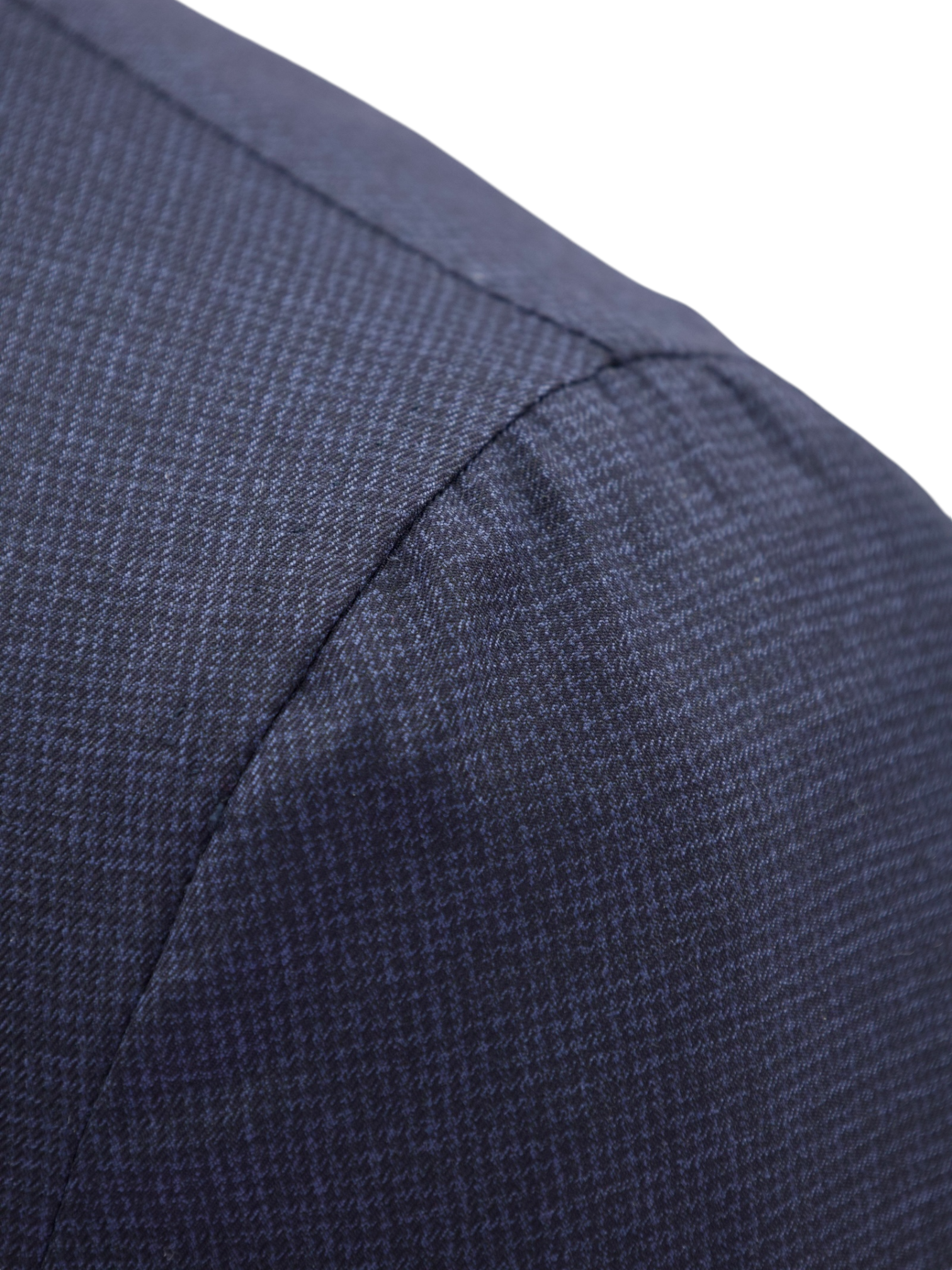
La Spalla Camicia
Spalla Camicia roughly translates to 'shirt sleeve' in Italian and is a shoulder style created and popularized by Neapolitan tailors. The name 'shirt sleeve' was so coined due to the characteristic shirring found at the sleeve's head where the fullness of the larger sleeve collapses. Rather than having the head of the sleeve turned back and stitched inside, the head is lapped under and stitched along the top.
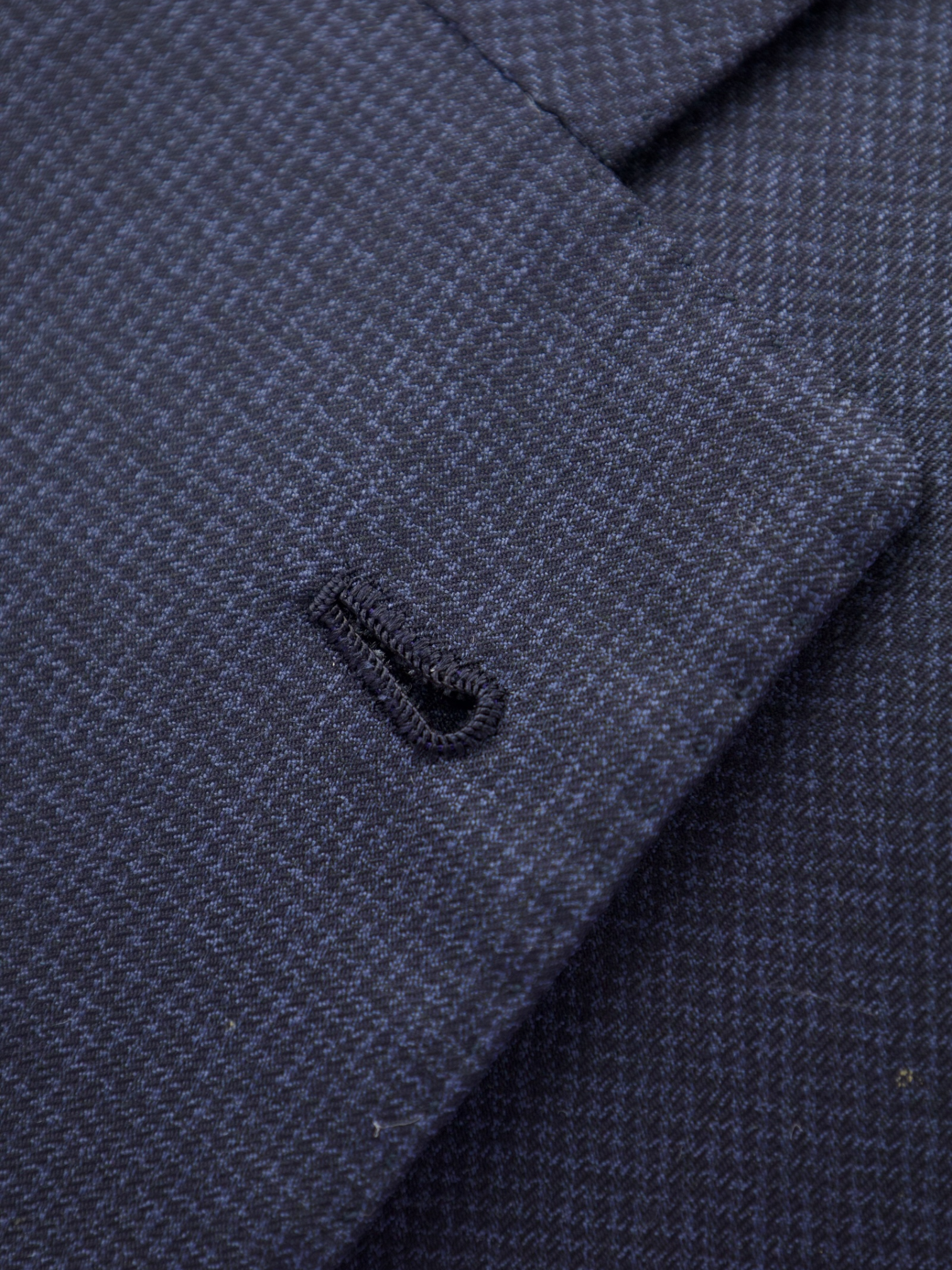
Neapolitan Buttonhole
The buttonhole preferred by tailors in Naples, Italy. The Neapolitan is a slightly shorter and thicker style of handmade buttonhole. It has a distinct opening at the end, which opens wider than any other buttonhole.
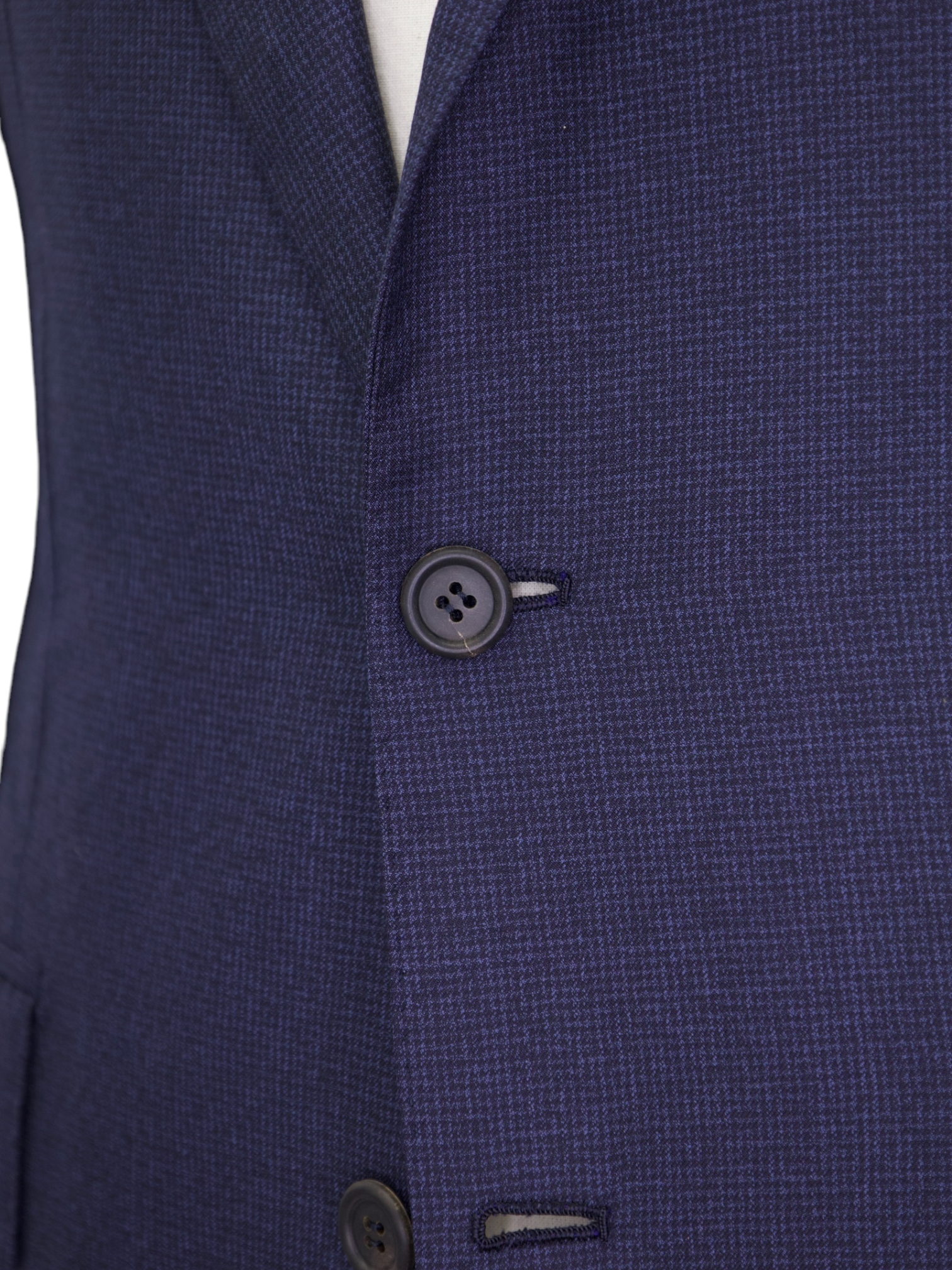
2.5 Button Closure
The ‘tre bottoni stirato a due’, also known as the three rolling on two lapel style, is perhaps the most infamous characteristic of the Neapolitan style jacket. The top button and buttonhole are ornamental, so are left unbuttoned. As the lapel rolls down it elegantly folds over the top button and stops just 4 cm above the second button creating the distinct roll of the lapel the style is known for. As it is intended to remain unbuttoned, the top buttonhole is actually made inside out so the beautiful side will still be visible.
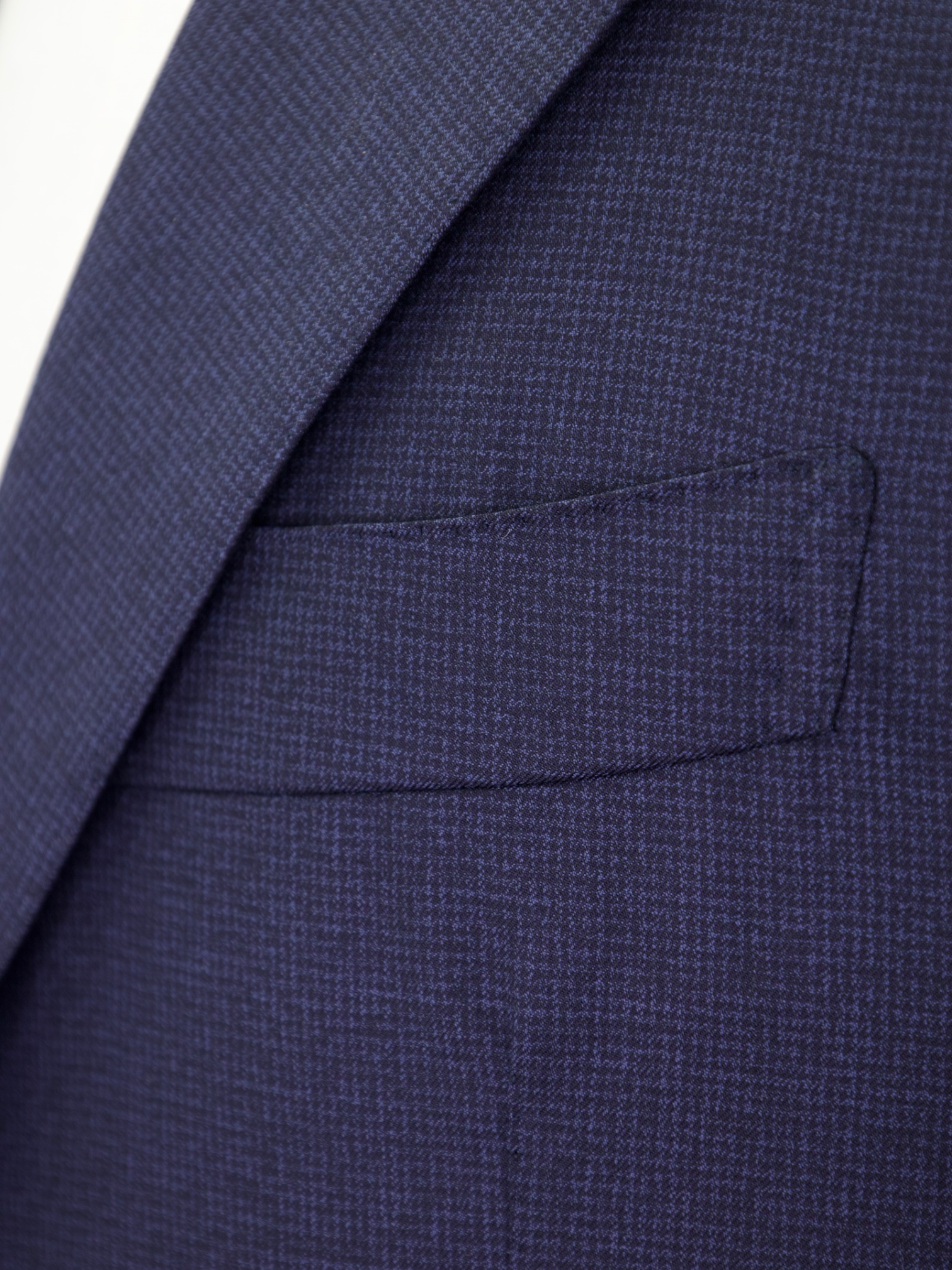
Barchetta Chest Pocket
The barchetta pocket is often thought to be a tailoring detail exclusively from Italy. The word “barchetta” is Italian for “little boat.” It describes how the pocket floats on the chest, gently angled upwards, like the bow of a sailboat.
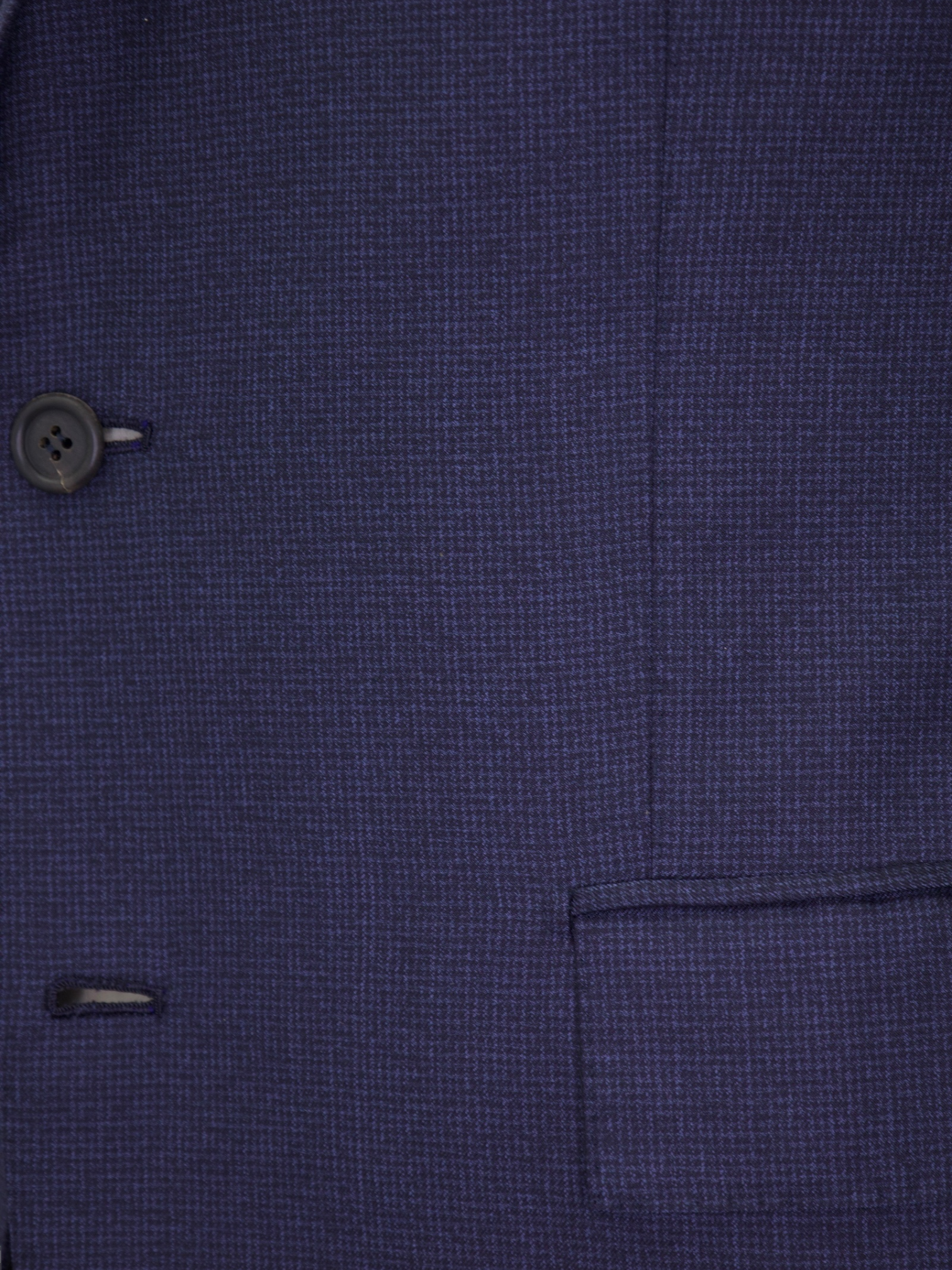
Neapolitan Darts
Neapolitan master tailors add two darts - think of them as pinched seams - to ensure the jacket’s body achieves a slim silhouette. The process, called mezzo punto riprese, is done entirely by hand.
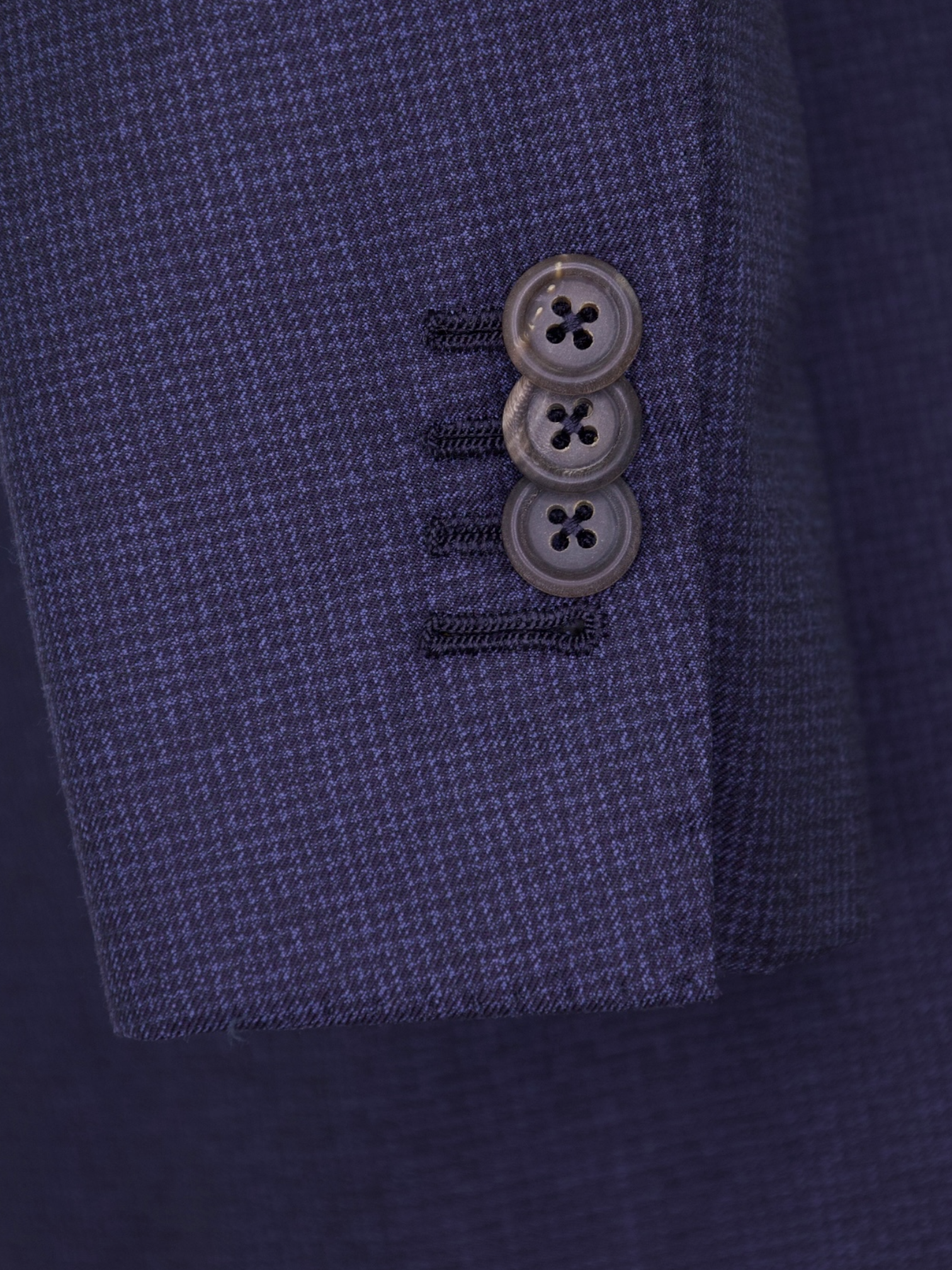
Kissing Buttons and Handmade Buttonholes
Also known as stacked buttons or waterfall buttons, kissing buttons are associated with Italian tailoring as Italian tailors make their jacket sleeve buttons in the kissing style. In this style, buttons touch each other and overlap one another. Handmade buttonholes; Even this step, apparently the simplest, is treated with an abundance of detail. Attaching the buttons is a job that requires patience and must be completed to perfection.
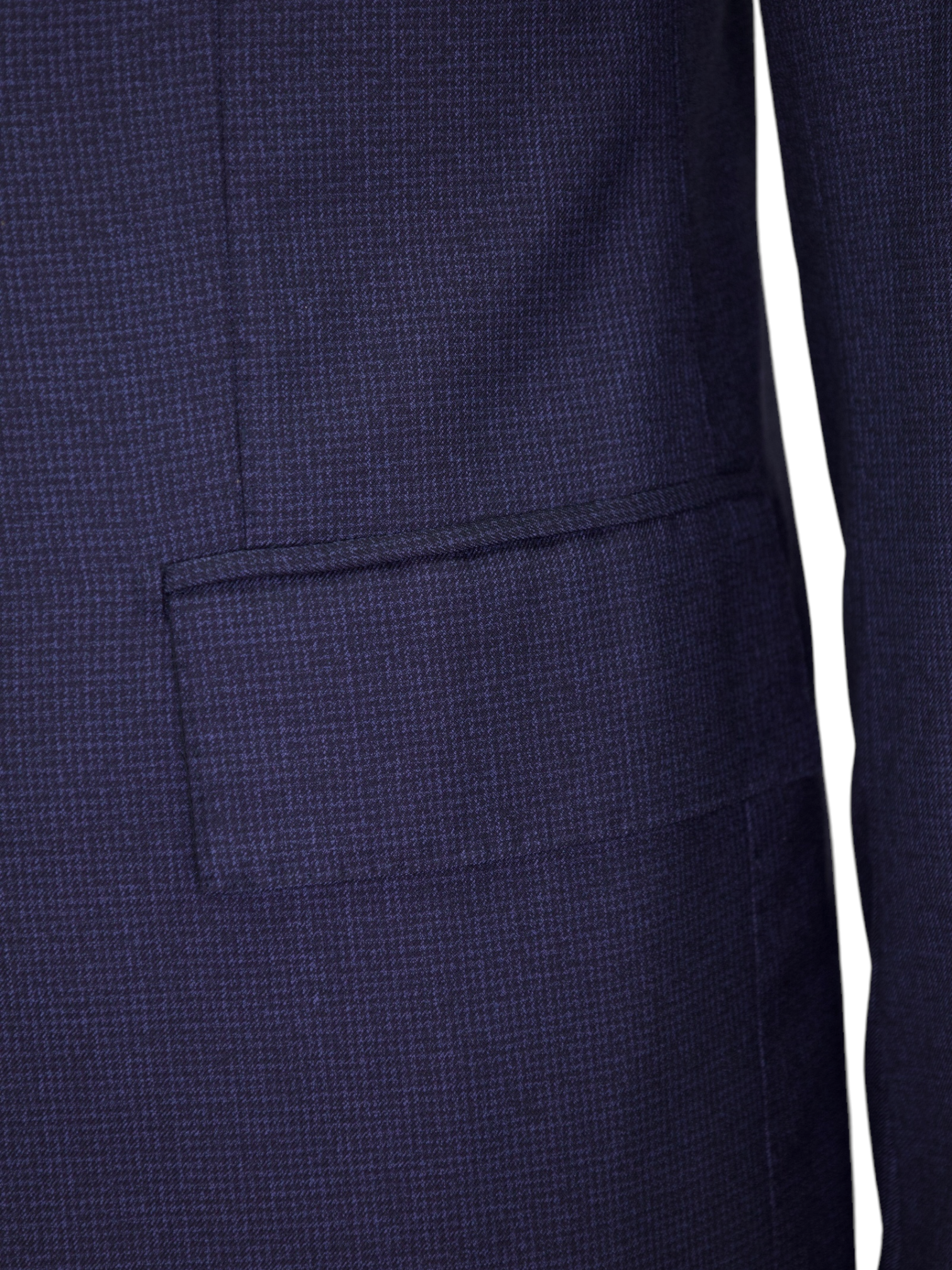
Flap Pockets
This was originally supposed to keep debris from getting into jacket pockets when worn in the country. Flap pockets occupy a sort of middle ground in terms of formality: they are the main choice for business suits, but they can also appear on sport coats as a testament to their casual origins.
the details of
the trousers
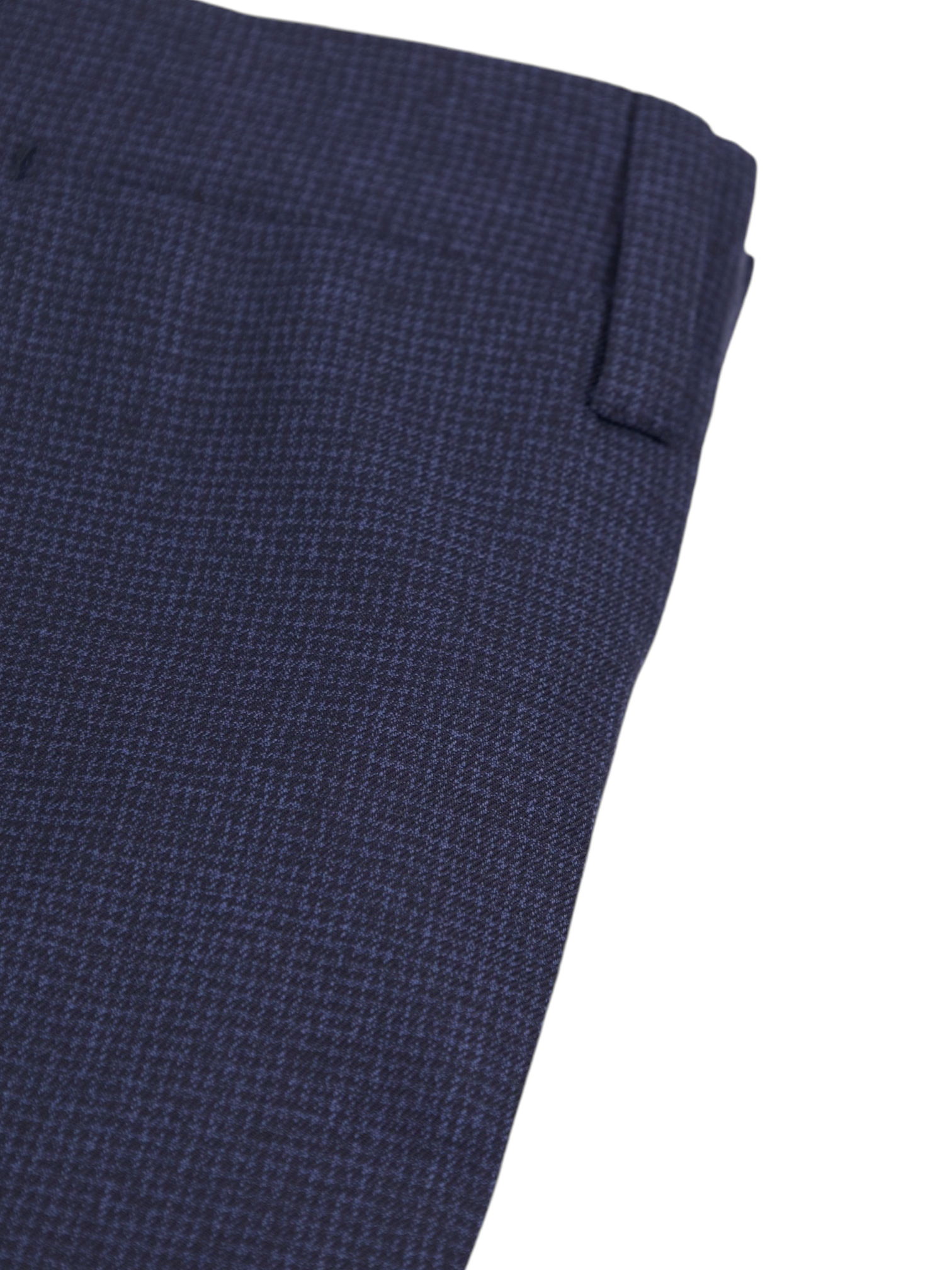
Flat Front
Flat-front trousers are a go-to for a modern, clean look. They became popular in the 1960s and 1970s when fashion started leaning towards simpler, more streamlined styles. Unlike pleated pants, flat fronts have no extra fabric at the waist, giving them a sleek appearance that's perfect for a slimmer silhouette. They fit right into both casual and business casual settings, making them incredibly versatile. As a result, they are a favorite for anyone looking to maintain a contemporary vibe in their wardrobe.
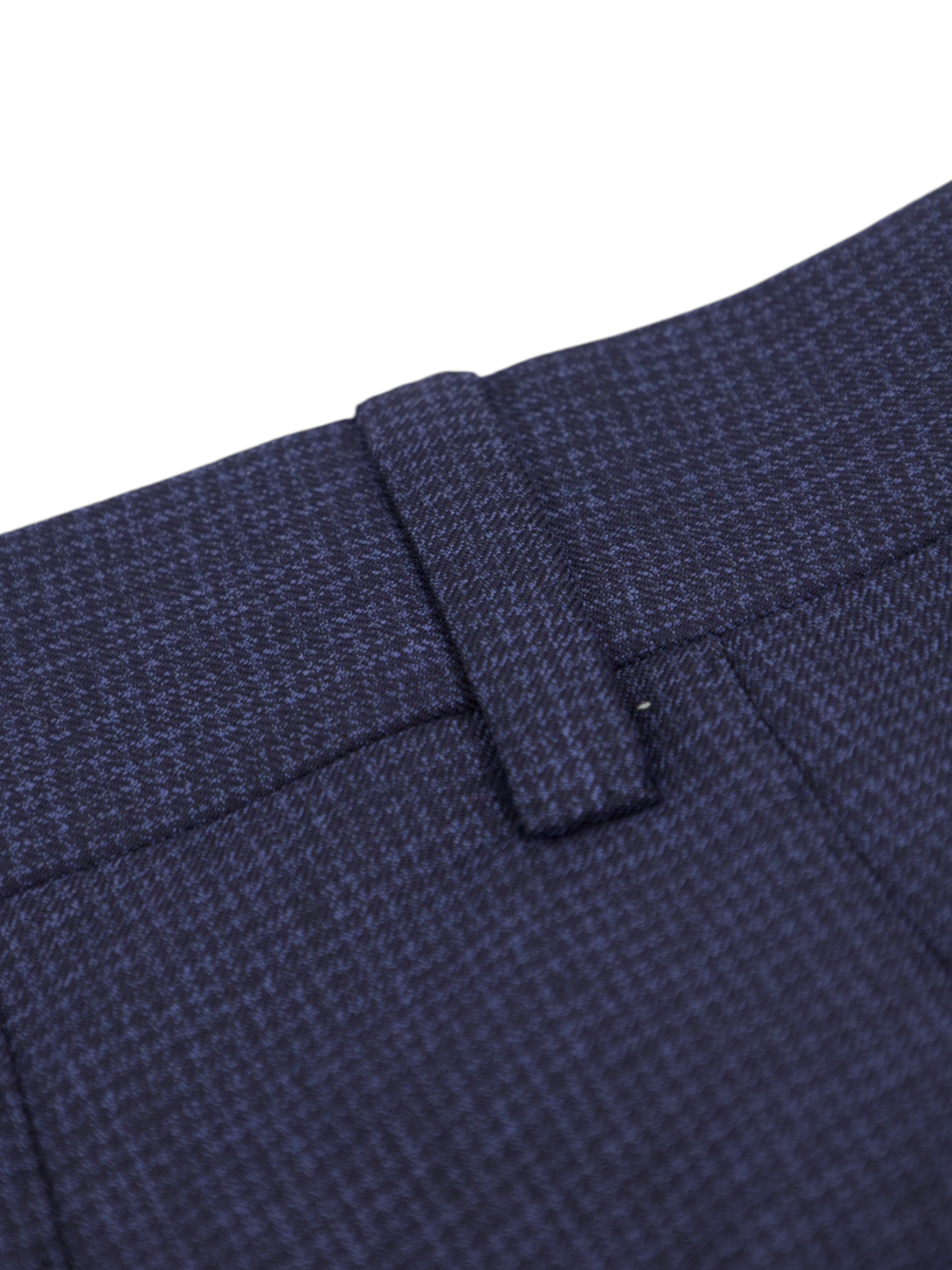
Belt Loops
Belt loops are the most common type of waistband found on trousers, providing the option to wear a belt for both style and practicality. Typically spaced evenly around the waistband, belt loops are a versatile feature that can accommodate a wide range of belt styles and sizes. This traditional waistband design is found in everything from casual jeans to formal dress pants, making it a timeless and adaptable option for any wardrobe. Belt loops offer the flexibility to customize your look while ensuring a secure fit.
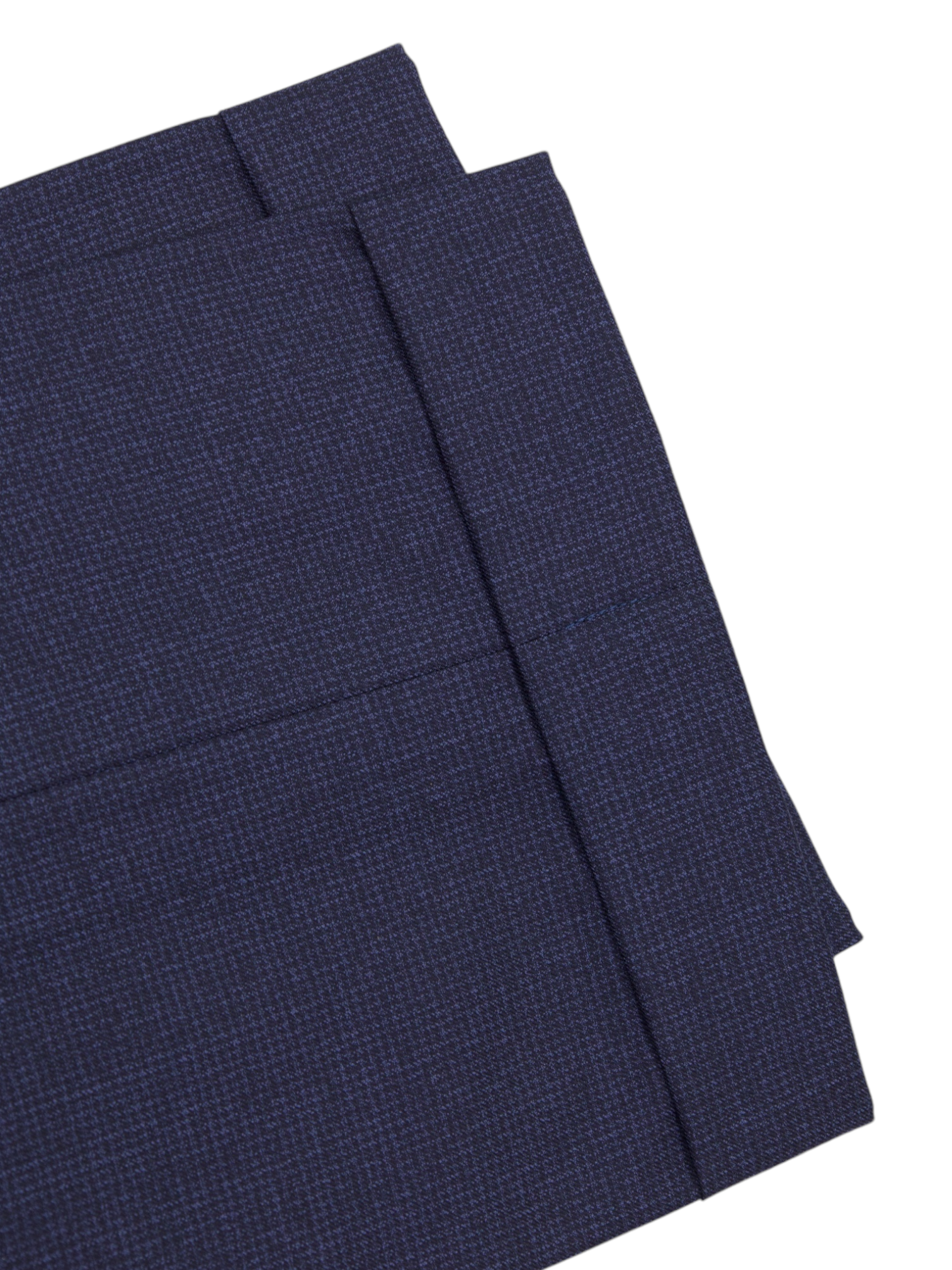
Turn-Up (Cuffed) Hem
The turn-up hem, or cuffed hem, is a classic style where the fabric at the bottom of the trousers is folded outward to create a visible cuff. This style originated with Edward VII in the late 19th century, who had his trousers tailored with cuffs to prevent them from getting muddy, sparking a trend among the fashionable elite. In the 1920s and 1930s, turn-ups became a symbol of wealth and sophistication, as having extra fabric was seen as a luxury. This association continued after World War II when wearing turn-ups subtly indicated affluence in an era of fabric rationing. Today, turn-up hems are a nod to their historical roots, offering a touch of classic elegance and enhancing the overall appearance of formal and tailored trousers.

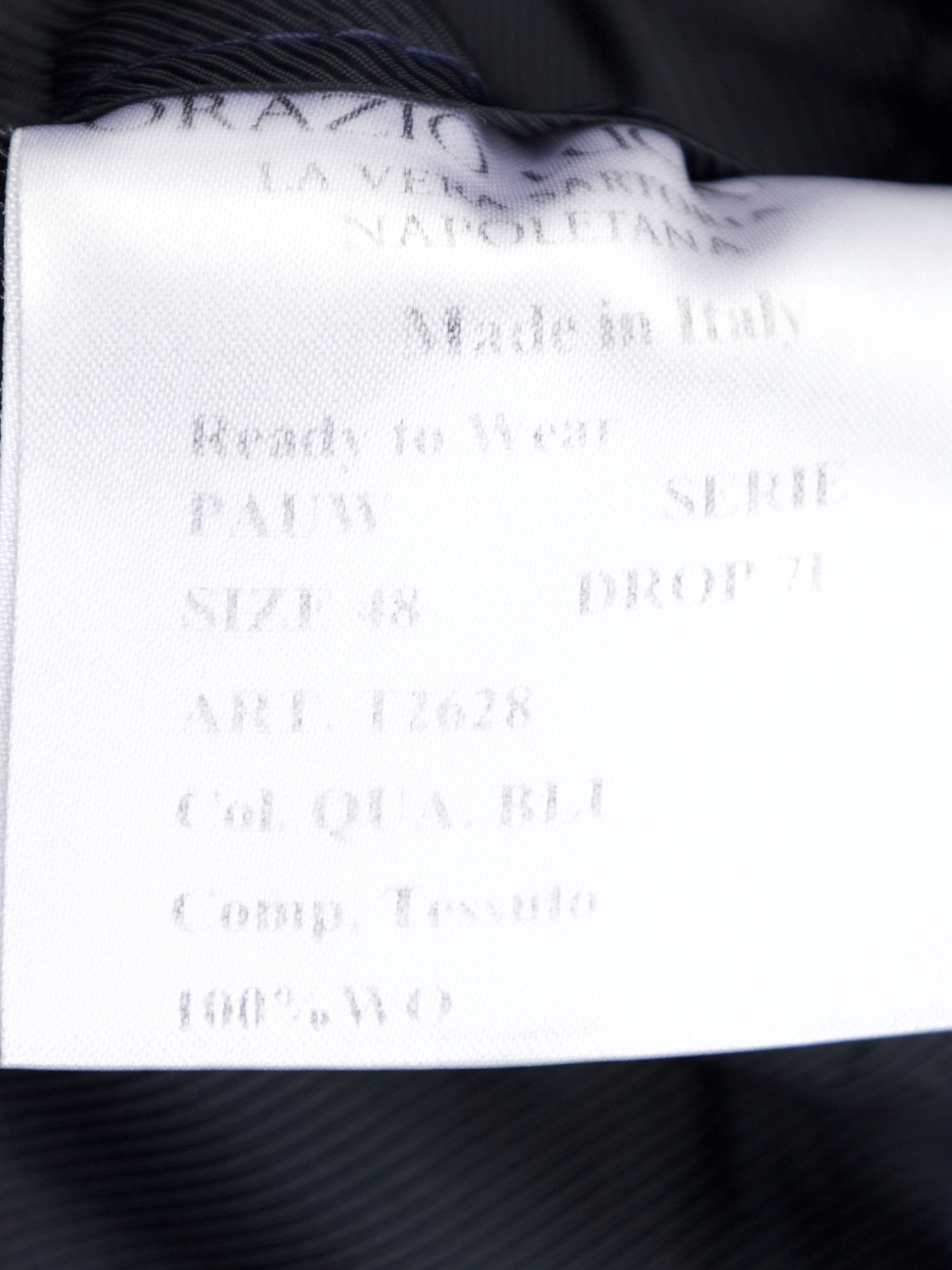
size
48 IT / 38 US / Medium


 Curator's Description
Curator's Description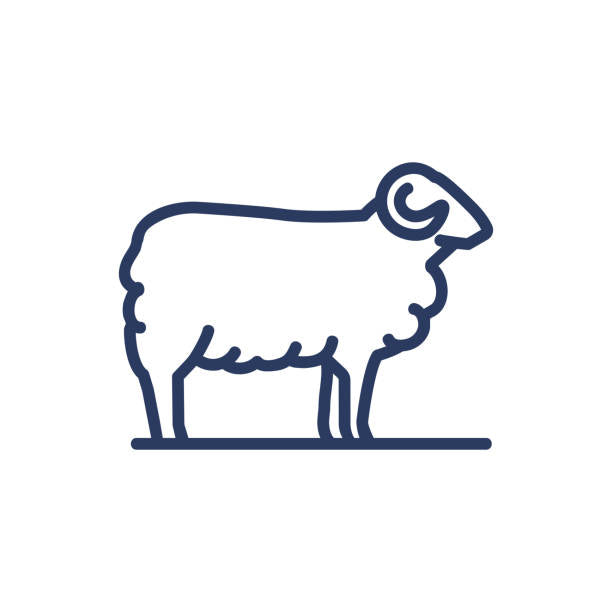 Materials
Materials